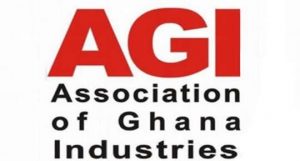The Customs Division of the Ghana Revenue Authority (GRA-Customs) is working toward a four-hour mandatory timeframe as the average period to clear goods at the ports beginning next year.
Currently, there is no approved time-baseline for clearing goods at the ports, a situation the Customs Division has said should have been addressed earlier to harmonize with implementation of the Integrated Customs Management System (ICUMS).
At a stakeholder pre-engagement workshop to deliberate on a Time Release Study (TRS) to provide concrete baseline data in the clearance process of goods at the ports, Deputy Commissioner of Customs-Petroleum Operations, Yaw Baffour Asare, said the move when implemented will significantly reduce clearance time and save money.
The meeting was to collaborate with all stakeholder organizations operating in the clearance chain at the ports, to obtain their contributions into the concept.
“Through this innovation, we’ll be able to determine and measure how long it takes to clear goods from Customs upon arrival at the ports. Barring all unexpected inconveniences with this process, goods imported through Tema should take between 4-6 hours to clear,” Mr. Baffour Asare noted.
The four-hour period, which he said is just a target, could go into 24 hours, adding: “The pre-arrival clearance model with the right documentation should get goods cleared within 4hours, while the post-manifest model could go beyond the 4-hour timeframe.”
The TRS is a systematic and standardized way to measure the average time taken between the arrival and release of goods, and has been recommended by the World Customs Organisation (WCO).
The TRS is also used as a diagnostic tool to identify any bottlenecks in the clearance process and logistics.
Mr. Baffour Asare explained that the TRS process is not a novel initiative in Africa, as most countries in the region, including Gambia, Kenya, Uganda and most African countries have the same innovation and are able to clear goods within six hours upon pre-arrival at their ports.
Legal basis of the TRS
Team Leader of Trade Facilitation and Import Management at the Trades Ministry, Kyeremeh Yeboah, indicated that the TRS project has a legal basis.
“Article 7.6.1 of the WTO trade facilitation agreement enjoins all member-countries to undertake the TRS to indicate the time it takes for goods to be moved out of ports upon arrival. This becomes major evidence to show that the participating country is actually facilitating trade,” he said.
He said article 7.6.2 of the WTO agreement also entreats member-countries to report to the WTO trade facilitation committee about progress of the TRS when it’s set up and being implemented.
He said recommendations from the workshop – which will include further stakeholder meetings, data collection and compilation, analysis and report writing – will take six months to complete and reduce the cost and time of doing business at the various land and seaports.






